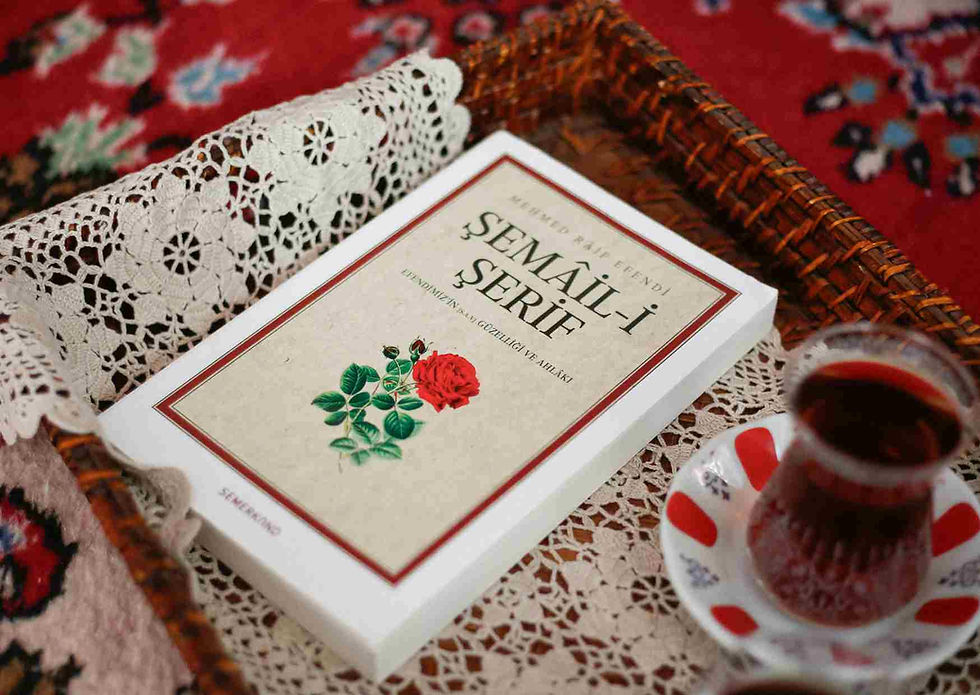"HISTORICAL FICTION - BRINGING THE PAST TO LIFE THROUGH FICTION": DE MODE OF LITERATURE
- DE MODE

- Feb 17, 2024
- 3 min read
ORIGINALLY PUBLISHED IN DE MODE | LITERATURE
Article Published on: 17TH FEB 2024 | www.demodemagazine.com
Historical fiction stands as a captivating genre that weaves the fabric of the past into vibrant narratives, breathing life into bygone eras and civilizations. Through meticulous research and imaginative storytelling, authors transport readers across time and space, offering glimpses into the triumphs, tragedies, and intricacies of history. In this exploration, we delve into three notable historical fiction works, each exemplifying the genre's power to illuminate the human experience through the lens of the past.
"The Pillars of the Earth" by Ken Follett
Set against the backdrop of 12th-century England, Ken Follett's epic masterpiece "The Pillars of the Earth" traces the construction of a cathedral in the fictional town of Kingsbridge. Against a backdrop of political intrigue, religious strife, and social upheaval, the novel unfolds as a sweeping tapestry of ambition, betrayal, and redemption.
Follett's meticulous attention to historical detail imbues the narrative with a palpable sense of authenticity, transporting readers to a time of knights and nobles, peasants and priests. Through the lives of a richly drawn cast of characters, including master builder Tom Builder, the resourceful Aliena, and the villainous William Hamleigh, the novel explores themes of power, faith, and the indomitable human spirit.
At its core, "The Pillars of the Earth" is a testament to the enduring power of hope and resilience in the face of adversity. As the characters navigate the tumultuous currents of medieval society, they confront personal and collective challenges, forging bonds of friendship and loyalty that transcend class and creed.

"The Nightingale" by Kristin Hannah
Set in Nazi-occupied France during World War II, Kristin Hannah's "The Nightingale" is a poignant tale of courage, sacrifice, and survival in the face of unspeakable horror. Against a backdrop of fear and uncertainty, two sisters, Vianne and Isabelle, navigate the treacherous landscape of war, each confronting moral dilemmas and impossible choices.
Hannah's lyrical prose and vivid storytelling transport readers to a world torn apart by conflict, where ordinary men and women are called upon to perform extraordinary acts of bravery and defiance. Through the lens of the sisters' experiences, the novel explores themes of resistance, resilience, and the enduring bonds of family and love.
"The Nightingale" serves as a haunting reminder of the human cost of war and the capacity for both cruelty and compassion that resides within us all. As the characters confront loss, betrayal, and heartache, they discover reservoirs of strength and resilience they never knew they possessed, forging a legacy of courage and hope that endures long after the final page has been turned.

"Wolf Hall" by Hilary Mantel
Hilary Mantel's "Wolf Hall" transports readers to the tumultuous court of Henry VIII, offering a mesmerizing portrait of one of the most pivotal periods in English history. Through the eyes of Thomas Cromwell, the novel explores the machinations of power and politics in the court of the Tudor monarch, as England stands on the brink of religious and social upheaval.
Mantel's immersive prose and meticulous attention to historical detail breathe life into the corridors of power, where ambition, intrigue, and betrayal abound. Through Cromwell's cunning and intellect, readers witness the rise of a commoner from humble origins to become one of the most influential figures of his time, reshaping the course of history in his wake.
"Wolf Hall" is a masterful meditation on the nature of power and the complexities of loyalty and allegiance in a world fraught with uncertainty and danger. As Cromwell navigates the treacherous currents of courtly life, he grapples with moral ambiguity and the weight of his own conscience, forging alliances and enemies in equal measure.

Conclusion
In conclusion, historical fiction stands as a powerful testament to the enduring allure of the past and its capacity to illuminate the complexities of the human experience. Through the artistry and imagination of authors like Ken Follett, Kristin Hannah, and Hilary Mantel, readers embark on journeys of discovery and enlightenment, traversing the landscapes of history in search of truth, beauty, and meaning.
In the evocative worlds of these novels, the past comes alive with all its triumphs and tragedies, its joys and sorrows. Through the lives of richly drawn characters and the tapestry of events that shape their destinies, readers gain insights into the forces that have shaped our world and continue to influence our lives today.
As we journey through the corridors of time, historical fiction reminds us of the enduring power of storytelling to bridge the chasm between past and present, forging connections that transcend the boundaries of time and space. In the luminous realms of the imagination, the past lives on, offering solace, inspiration, and understanding to all who dare to venture into its embrace.



Comments